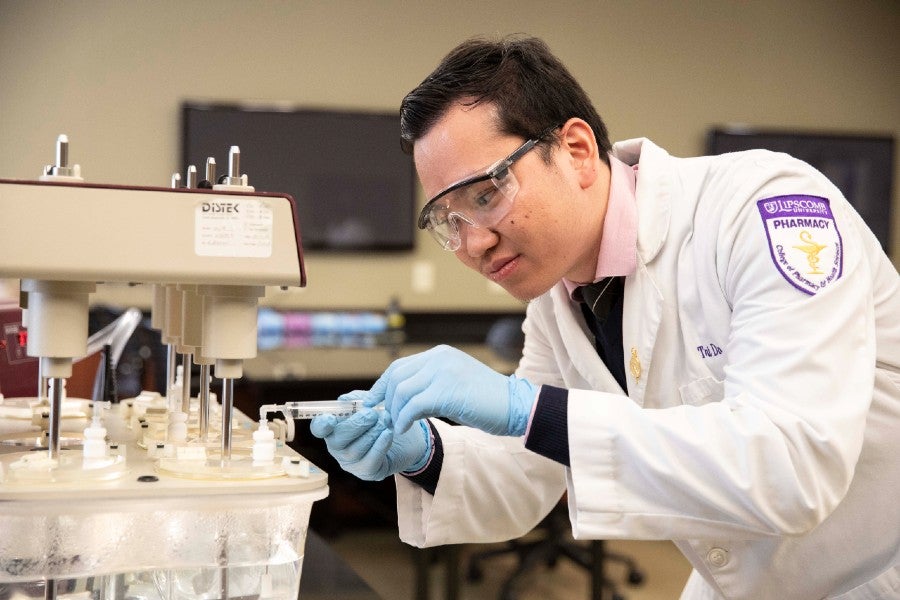Pharmacy college tapped to host AACP national conference
Conference is the first step taken by a national center working to increase the pace of change in health care.
Janel Shoun-Smith |

The American Association of Colleges of Pharmacy (AACP) has launched a new unit designed to increase the pace of change in pharmacy education and practice, and Lipscomb University’s College of Pharmacy was tapped as one of six universities to host the first step in the process.
AACP, a national organization that works to advance pharmacy education, research, scholarship, practice and service, recently established the Center to Accelerate Pharmacy Practice Transformation and Academic Innovation.
The purpose of the AACP Transformation center is to empower academic pharmacy’s contributions to creating a healthy world by integrating the expertise of pharmacists and pharmaceutical scientists into current and evolving models of care delivery.
The first initiative of the new center is the Bridging Pharmacy Education and Practice Summit, to be held in June and to be hosted by Lipscomb, along with University of Pittsburgh, Florida A&M, The BIG-10 Pharmacy Collaborative Group, the University of Texas and the University of Utah.
“This summit will be a historical meeting that will help shape the future of pharmacy education and how graduates will integrate into practice,” said Dr. Tom Campbell, dean of Lipscomb’s College of Pharmacy. “The impact of this meeting will have the potential to affect future curriculum within colleges of pharmacy, relationships with health-systems, pharmacy chains and specialty pharmacies as we continue to define the outcomes expected for pharmacy graduates.”
Six Lipscomb faculty will be attending the virtual conference: Campbell; Dr. Kam Nola, associate dean of academic affairs; Dr. Ben Gross, chair of pharmacy department; Chad Gentry, associate professor; and Abbie Burka, associate professor.
The summit has been planned collaboratively with six other national organizations closely connected to pharmacy education and post-graduate training and credentialing. A total of 300 participants will engage in strategic analysis and planning around topics such as competency-based pharmacy education, optimizing the continuum of learning, professional development and lifelong learning.
The BPEP summit will help shape the next accreditation standards for pharmacy education as well as practice expectations for pharmacists of the future, Campbell said. “We are at a pivotal point within the profession, which has been highlighted even more due to the pandemic, where the pharmacy profession is seen by the public as a first stop to where their health care needs can be addressed.”
Site selection was a very competitive process, noted Campbell. “Lipscomb’s selection is an endorsement that the college is seen as an organization committed to developing leaders within the academy and the profession,” he said.
“It is also a statement of how Nashville is viewed across the country as being a leader in health care and specifically in pharmacy practice and team-based care,” he said.